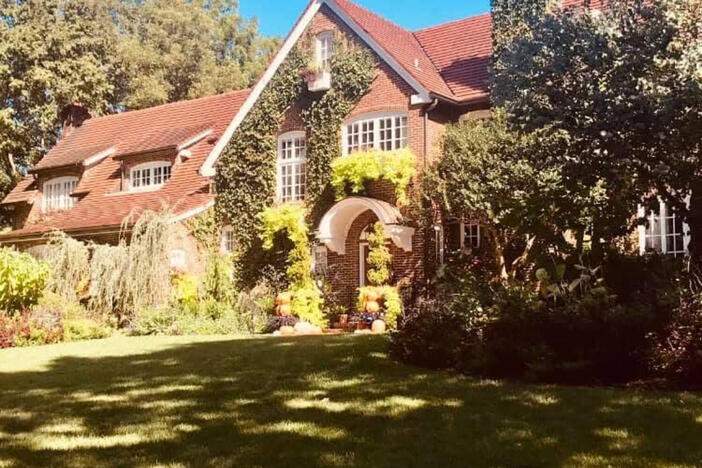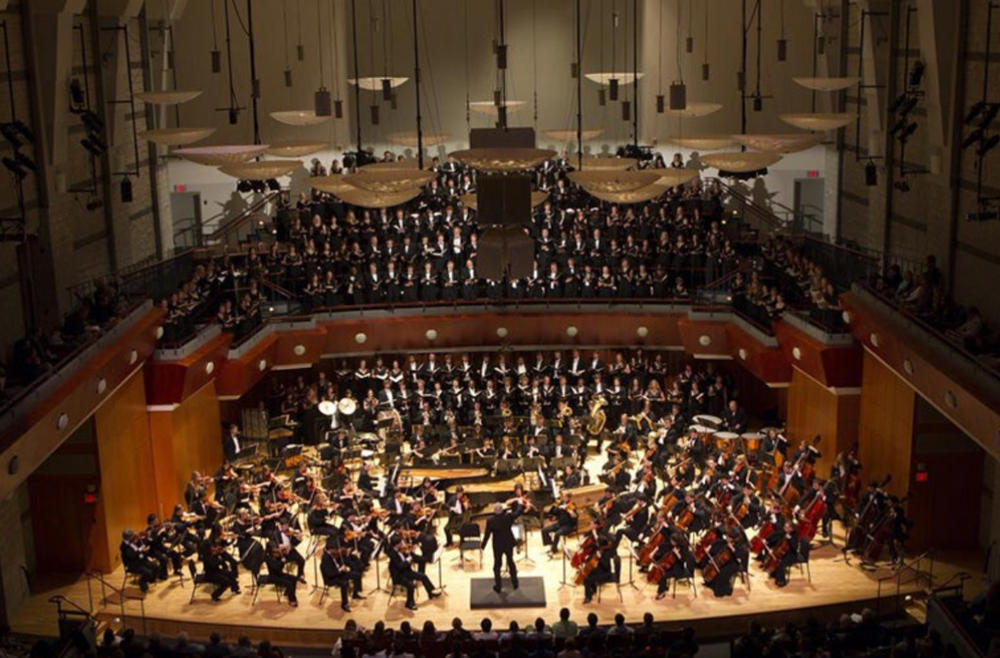
Section Branding
Header Content
'Handel-ing' an Atlanta Christmas Tradition
Primary Content

Earlier this week with Christmas approaching, marooned in Atlanta freeway traffic, listening to satellite radio, and Robert Shaw (1916-1999) leading the Atlanta Symphony Orchestra in George Frederick Handel’s masterpiece, "Messiah."
The immortal Baroque-era oratorio heralds the hope and joy of the season and has been a favorite since its debut in 1752.
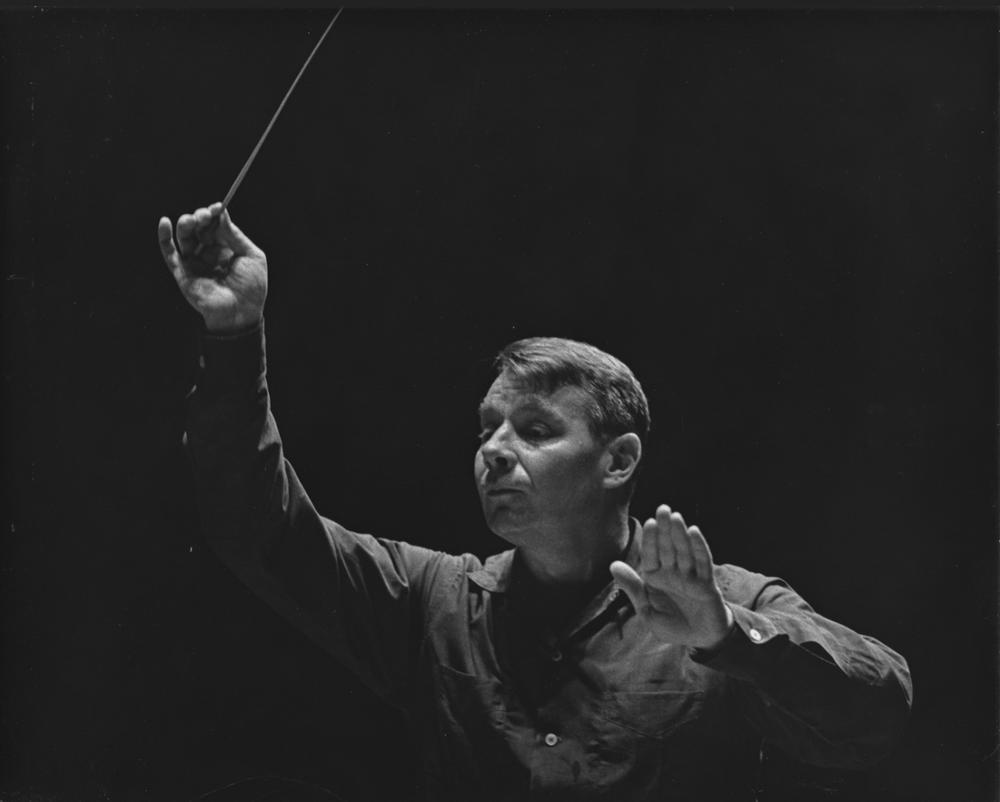
Robert Shaw and the 27-time Grammy-winning ASO are one of the definitive sounds of this great work.
Atlanta and "Messiah" are always internationally linked. The Shaw recordings are recognizable to even to an untrained ear like mine.
They are the favorite of many Handel fans and classical music show hosts.
“I don’t really agree with you Jeff,” said Nick Jones, “there are many extraordinary interpretations around the world through the decades, including large orchestras, churches and small concert halls.”
Mr. Jones (bass) would know; the 80-year-old singer has been with the ASO chorus for 55 seasons inside symphony hall.
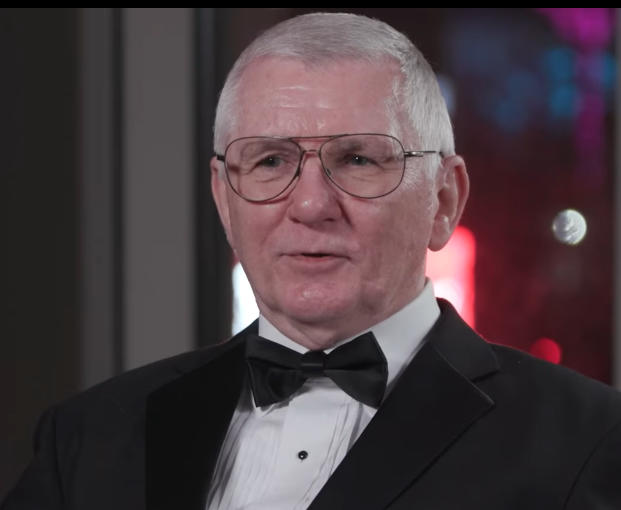
“Robert Shaw began a revolution on 'Messiah' in the 1950s; he changed the tempo, made it with a peppy tempo, less Victorian,” added the Georgia State alum who began at Georgia Tech. “He (Shaw) made 'Messiah' more digestible to the public, hubris had been removed from the singers, and the chorus had been pared down.”
"Messiah" is one of the few masterworks of the Baroque era written in English, rather than German and Italian which appealed to the middle class in England and Ireland where it was first performed in the 1700s.
Mr. Jones and the ASO are in the midst of a busy holiday season inside Symphony Hall with sold-out performances through the month, including "Messiah." It’s been 26 years since Maestro Shaw’s death and his musical influence is still felt on Peachtree.
“We maintain the training that Robert Shaw gave us, emphasizing the unity of diction and intonation,” said Mr. Jones. “He could look at a manuscript and remark it; his great secret was ensemble perfection, starting and stopping on a dime, a 1/2 note after two beats.”
The work of Handel has been described as a commentary on Jesus Christ’s nativity, passion, resurrection and ascension, beginning with God’s promises as spoken by the prophets, and ending with Christ’s glorification in heaven.
“We (chorus) all learned precision here and feel a responsibility to carry it forward; he (Shaw) is always missed.” Mr. Jones paused. “Shaw was cantankerous, grumpy, and often unkind, but performances with him were very special.”
He tells a story of driving the maestro’s luxurious Bentley from the Arts Center to the Shaw home in Sandy Springs.
"Tthe vehicle had no mirrors," Jones said. "Changing Atlanta lanes was excruciating.”
There were no such challenges in concert halls.
An Indiana University music publication wrote of a 1960s Messiah recording, “…Shaw’s recording is an almost an exact recreation of Handel’s 1752 version. Its tempos particularly in the choruses were quick and exciting but always controlled. Shaw turns the tables on Handel, therefore, using more singers than instrumentalists, he strikes a fine balance between chorus and orchestra.”
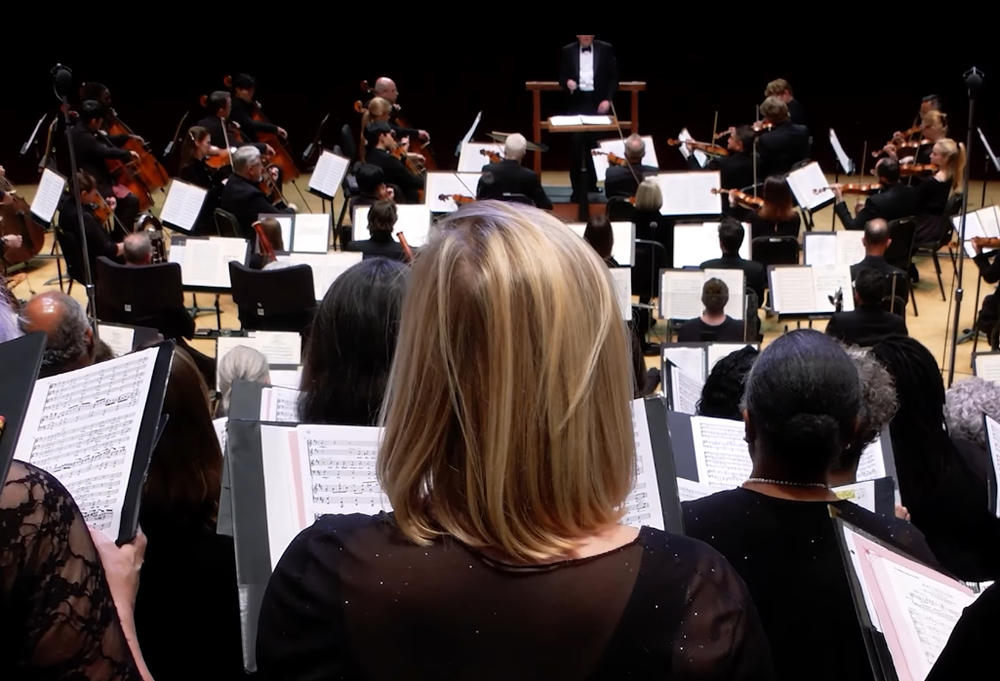
Glory to God in the highest! Peace on earth, good will towards men.




